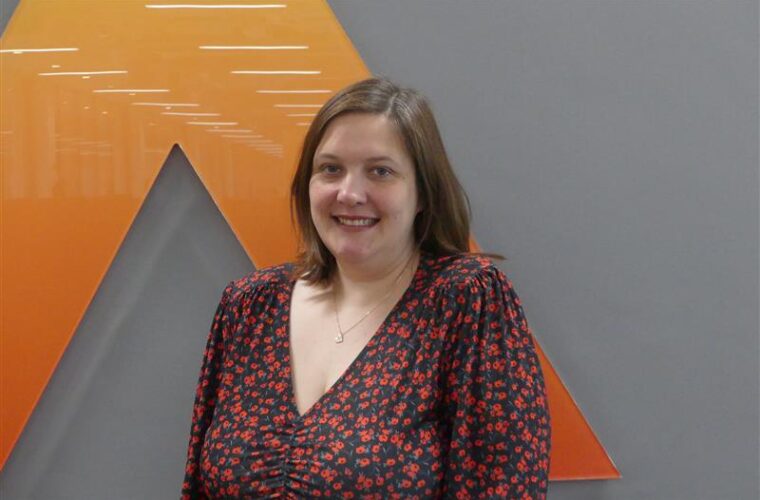How corporate ladder burnout helped create an app to help curb mental health issues
With stress awareness month approaching in April and mental health coming under the spotlight in January, we decided to look at some apps that are helping people cope with depression, anxiety and more.
According to The National Institutes of Health, over 31 per cent of U.S. adults experience an anxiety disorder at some time in their lives. In addition, a study from Our World in Data reveals that depression is one of the most common health conditions globally, with between two to six per cent of people worldwide experiencing the illness in 2021.
One of many apps helping people manage their mental well-being globally is Wysa. Born in Bengaluru, it features a unique A.I.-powered chatbot that can help users measure and talk through any negative thoughts and emotions.
The concept for Wysa was developed on the back of severe burnout experienced by its Founder and CEO, Jo Aggarwal, who recently spoke about mental health tech at The World Economic Forum. After meeting at college, Jo and her husband Ramakant Vempati embarked on corporate careers, a world away from where they are now. It was those high-intensity roles that influenced how she generated such powerful technology.
We spoke to Jo Aggarwal as part of our Women in Tech series and asked about corporate ladder burnout, the success of the app and the future of mental health and technology.
Where did the concept for Wysa come from?
When corporate stress and burnout had taken their toll, I started to suffer from depression. Meanwhile, myself and my husband Ramakant were caring for his elderly father, who was bipolar. It was this first-hand experience of the impact of mental health that sparked the concept for Wysa. We later developed a machine learning platform that would analyze available data points on mobile phones, such as calling patterns, screen time and sleep time, to put together a three-dimensional view of someone’s mental health.
A clinical trial followed the results, which proved that by studying data patterns, the app could identify people at risk of depression with up to eighty-five per cent accuracy. The trial app asked users, “How are you feeling today?” with answers provided in emoji form. It had an instant impact. The data showed that the app wasn’t just identifying those at risk from depression but actively helping improve their mood. We then created the Wysa app from this evidence, using evidence-based Cognitive Behavioural Therapy (CBT) exercises alongside a library of interactive self-help content and an emotionally intelligent A.I. chatbot.
Please tell us more about the technology involved.
In terms of technology, Wysa’s A.I. is both listening and therapeutic. During the listening stage, Wysa prompts users with open-ended questions to help them reflect and explore their thoughts and feelings. It also leads them towards the therapeutic stage, where Wysa guides the user through evidence-based CBT techniques the A.I. identifies as relevant to that particular user.
Wysa’s A.I. has evolved through co-development between clinicians, users and designers. Wysa has over 100 natural language understanding (NLU) A.I. models through which it listens and interprets, but the responses it provides are not A.I. generated. Instead, Wysa uses a clinician-approved rule engine that allows it to respond intelligently and appropriately while maintaining clinical safety.
For example, many users objected to reframing negative thoughts towards a cheating partner. This led us to create a new model to detect that the user was talking about a relationship with trust issues so that Wysa could respond to these conversations in a more appropriate manner.

What was the biggest challenge you faced in setting up the platform?
I think the main challenge wasn’t so much developing the A.I. as understanding what works and what doesn’t for users in a self-help setting. With over 500 million conversations, Wysa has been able to give users a voice in influencing the course of how self-guided therapeutics are delivered.
What are the most significant benefits consumers face in using such technology?
Private therapy can be prohibitively expensive for much of the population, and we are fortunate that the U.K.’s mental health support system is where it is now. We believe that Wysa will make it better by helping to resolve access challenges and by releasing clinician time for care. A peer-reviewed clinical research study in Frontiers shows people develop an emotional
bond with the Wysa chatbot in much the same way people bond with a human therapist. In addition to this, Wysa uses lots of different types of therapy – research-backed, widely used techniques of Cognitive Behavioral Therapy (CBT), Dialectical Behavior Therapy (DBT), and meditation exercises to support people with depression, stress, anxiety, sleep and a whole range of other mental health and wellness needs.
What are your ambitions for the platform for the year ahead?
Well, the first step of a stepped-care model becomes scalable with an A.I. conversational agent with a unique capacity to build a clinically safe bond and take on a significant portion of the therapeutic effort. This frees clinicians to provide specialist support and interventions to those with more severe concerns.
We want to see Wysa integrated further into the NHS Talking Therapies services. We will also further embed Wysa into employee assistance programmes and enterprise partners to offer support – we already work with around 11 million people worldwide, with partners that include the Ministry of Health in Singapore, Allianz, and Colgate-Palmolive.
How does using a chatbot for your mental health services work exactly?
Being on a waiting list for NHS talking therapy usually means waiting, perhaps with one or two self-help leaflets. NHS mental health services are starting to move toward better patient engagement during this waiting period. We are seeing a shift from waiting to preparation time, where digital resources and apps such as Wysa can guide people through early personal self-help work through CBT exercises to manage some of their mental health symptoms.
The NHS version of Wysa includes an electronic triage tool – an A.I. chatbot widget embedded within local services websites, to enable interactive self-referrals to talk therapy services. The Wysa clinical triage has the potential to release clinical time for care as well as the functionality to flag risk language for crisis attention. While on the waiting list for an NHS therapist, Wysa will give on-demand access to AI-guided conversational mental health support, including access to 150+ interactive self-help exercises. Patients will continue to be able to access Wysa’s A.I. chatbot and self-help tools for a year after discharge.
What are the most significant anxieties users are experiencing at the moment?
We know that mental health conditions contribute to the highest disease burden in the general population. Work-related stress is linked to an increase in mood disorders in this population. Hence, addressing the mental health challenge for the world has to start from there. We recently presented a paper at the World Economic Forum in January. Our research showed that, from an analysis of one hundred and fifty thousand conversations with eleven thousand three hundred employees from eleven organizations and sixty countries, many employees report feelings of sadness and depression. In fact, since the start of the COVID-19 pandemic, some 42 per cent of employees globally have reported a decline in mental health. In addition, over thirty-three per cent of employees globally reported feeling ‘not okay’ at the start of the workday. This number kept going up, reaching its peak at forty per cent towards the end of the day.
And finally, what do you feel the future holds for mental health applications? Are there any trends emerging within the space that technology could assist with?
We’d like to see a model like that in Singapore, where Wysa Premium is fully available to the population under the MOHT’s national health service as a preventative measure that triages people towards the right help at the right time. There, Wysa’s technology underpins mindline.sg, providing a government-backed platform to enable everyone in Singapore to improve their well-being through an on-demand resource. We believe this universal approach eliminates the need to wait for human approval, a globally recurring barrier to accessing help.



